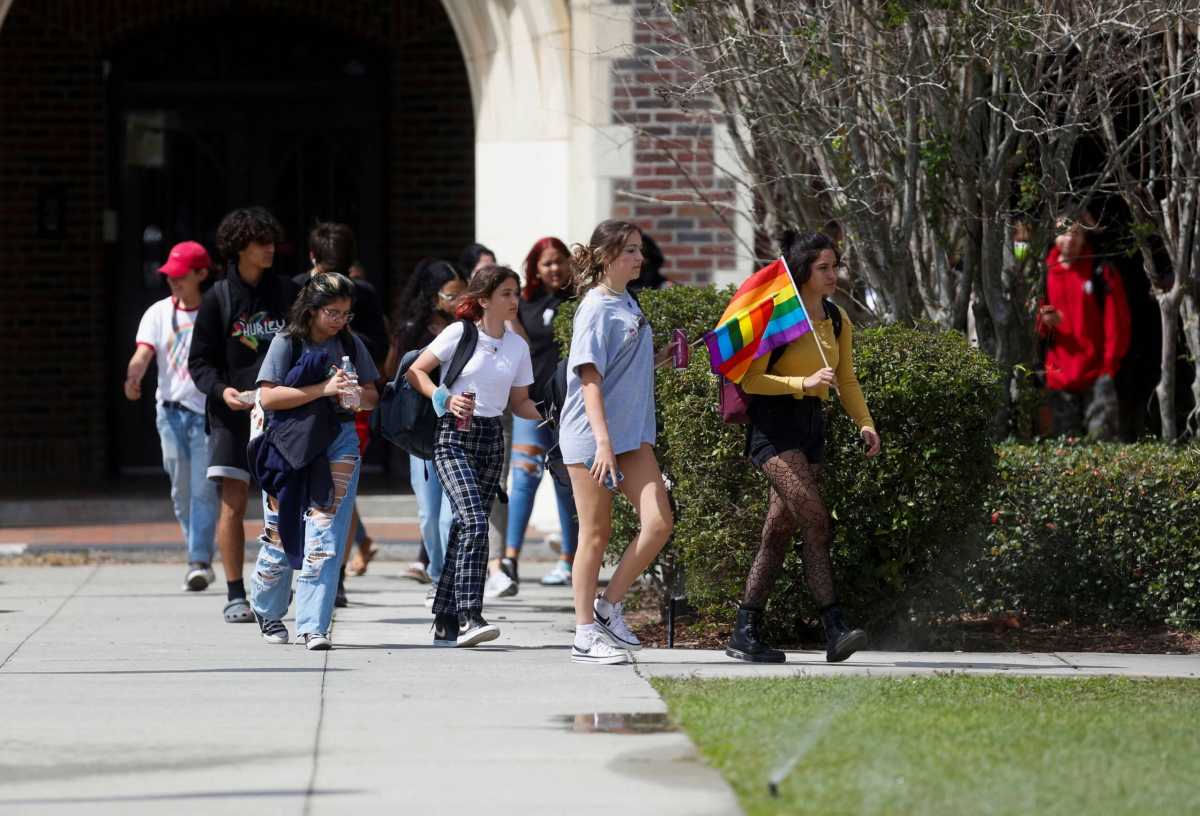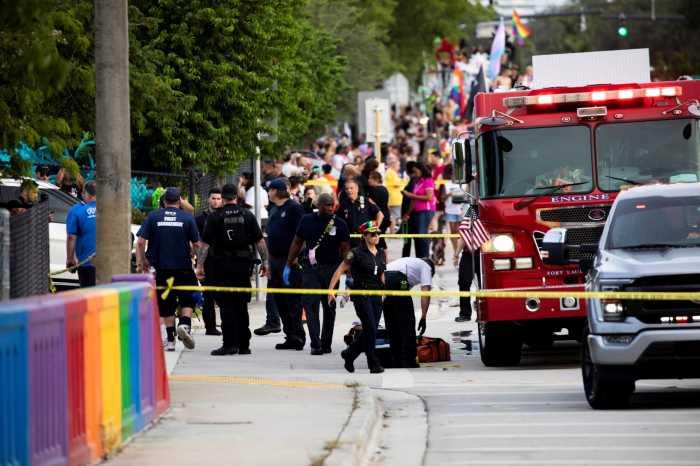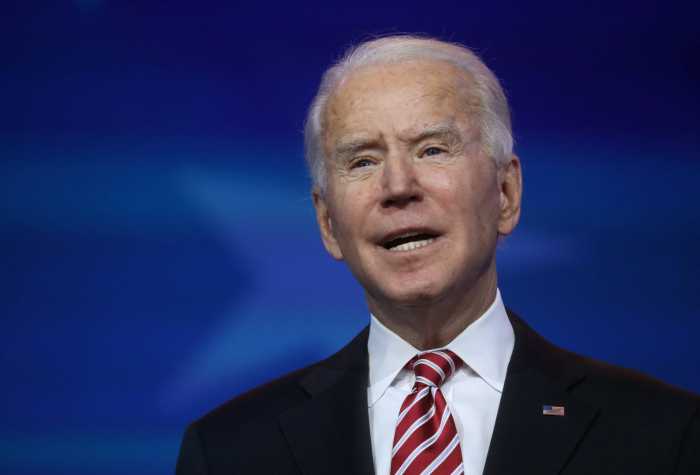The legislative campaign to ban discussion of LGBTQ issues in Florida classrooms plowed forward on March 8 when the State Senate approved the so-called “Don’t Say Gay or Trans” bill.
The fate of the legislation, which already cleared the lower chamber, is now in the hands of Republican Governor Ron Desantis, who boasts an extensive anti-LGBTQ record and has expressed his support for the bill.
The final legislation passed by the upper house stipulates that classroom instruction “on sexual orientation or gender identity may not occur in kindergarten through grade three or in a manner that is not age appropriate or developmentally appropriate for students in accordance with state standards.”
While the bill has developed a nationwide reputation for its core purpose — banning LGBTQ-related discussions in classrooms — it further poses serious privacy concerns for students who are not yet prepared to come out to their family. The law calls for parents to be notified of any changes to a student’s physical, mental, or emotional health. The bill also allows parents to sue school districts for violating the law.
Florida Democrats mounted aggressive resistance to the bill during a debate on the State Senate floor moments before the vote took place. State Senator Tina Polsky, a New York-born lawmaker who represents parts of Palm Beach and Broward Counties, asked her colleagues whether they seriously believe teachers are engineering children to be gay.
Osceola County State Senator Vic Torres, who has an out trans child, denounced the bill as unnecessary and said he would not support it. Another state senator, Linda Stewart, whose district includes the site of the Orlando Pulse massacre, warned her colleagues of passing such legislation just six years after dozens of LGBTQ people were murdered in a senseless attack.
None of that, however, fazed the 22 lawmakers — all Republican — who eventually voted in favor of the bill. GOP State Senator Garcia echoed conversion therapy rhetoric during her speech on the Senate floor.
“Gay is not a permanent thing,” Garcia said. “LGBT is not a permanent thing.”
Seventeen lawmakers voted against the bill, including Jeff Brandes, who was the lone GOP state senator to oppose it. If DeSantis approves the measure, it would go into effect on July 1.
The legislative proposal is the latest in a string of anti-LGBTQ bills targeting queer youth — especially trans children — in numerous states across the country. Earlier this month, Texas took the extraordinary step of launching investigations into the families of trans youth receiving gender-affirming care, though a court has at least temporarily halted one of the probes conducted by the state.
Meanwhile, much of the national attention is focused squarely on Florida’s “Don’t Say Gay or Trans” bill. Nationwide anger over that legislation boiled over in recent days after DeSantis’ press secretary, Christina Pushaw, invoked false stereotypes about queer people when she posted a tweet comparing LGBTQ individuals to pedophiles.
“The bill that liberals inaccurately call ‘Don’t Say Gay’ would be more accurately described as an anti-grooming bill,” Pushaw wrote on March 4. In a subsequent tweet, Pushaw wrote, “If you’re against the anti-grooming bill, you are probably a groomer or at least you don’t denounce the grooming of four-to-eight-year-old children.”
LGBTQ folks on the ground in Florida are continuing to fight back. Equality Florida, a statewide LGBTQ advocacy group, blasted the bill’s “vague language” and warned schools against enforcing the law “in a way that endangers the safety of children.”
“At every turn, the Florida legislature rejected reasonable amendments to this legislation and refused to mitigate its harm,” Equality Florida said in a written statement after state senators passed the bill. “Now, in deference to the extreme political agenda of the governor, the Florida Senate has passed the hateful ‘Don’t Say Gay’ bill and sent it to his desk.”
Students, advocates, families, and others protested the bill during the days leading up to the floor vote. Hundreds of Florida students walked out of their classes and folks marched through the halls of the statehouse while chanting “We say gay!”
A legal fight is expected to emerge if the legislation is enacted — and it could come in direct conflict with the federal government’s policies pertaining to LGBTQ students. The US Department of Education announced last June that it would interpret Title IX — which bans educational institutions receiving federal funding from discriminating against students — to also include discrimination on the basis of sexual orientation or gender identity. That announcement came one year after the Supreme Court ruled that Title VII of the 1964 Civil Rights Act covers discrimination on the basis of sexual orientation or gender identity.
US Education Secretary Miguel Cardona denounced the “Don’t Say Gay or Trans” bill shortly after the Florida State Senate approved it.
“Leaders in Florida have decided that bills based on hate and discrimination take priority over our students’ pandemic recovery,” Cardona said in a tweet. “My team and I stand with our LGBTQ+ students in Florida and across the country and urge Florida leaders to protect & support all students.”



































